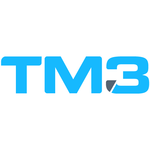Description

Hushmail

TM3
Comprehensive Overview: Hushmail vs TM3
Overview of Hushmail and TM3
Hushmail
a) Primary Functions and Target Markets:
- Primary Functions: Hushmail is an encrypted email service that focuses on providing secure communication solutions. Its core functionalities include end-to-end encryption for emails, secure web forms, e-signature capabilities, and integrating encryption into webmail interfaces. It is designed to protect privacy and sensitive data during email communication.
- Target Markets: Hushmail primarily serves individuals and businesses that require high levels of privacy and security. This includes healthcare providers, legal professionals, and any organizations that handle confidential information, making it particularly appealing for compliance with regulations like HIPAA in healthcare.
b) Market Share and User Base:
- Market Share: Hushmail’s specific market share in the encrypted email services sector is not widely published, but it competes with other privacy-centric services such as ProtonMail, Tutanota, and Mailfence.
- User Base: It caters to a niche audience concerned with email security and privacy rather than holding a broad mainstream audience. The user base includes privacy advocates, healthcare professionals, legal experts, and businesses needing secure communication.
c) Key Differentiating Factors:
- Encryption: Hushmail provides built-in end-to-end encryption, making it highly secure against unauthorized access.
- HIPAA Compliance: It distinguishes itself by offering services compliant with healthcare regulations, making it a preferred choice for healthcare professionals.
- Integrated E-signature Capabilities: It allows the use of legally binding e-signatures, which is a key feature for sectors needing to process agreements and consent forms securely.
TM3
a) Primary Functions and Target Markets:
- Primary Functions: TM3 is a practice management software designed to streamline administrative tasks for healthcare practices. It facilitates appointment scheduling, patient record management, billing, and reporting.
- Target Markets: TM3 targets physiotherapy clinics, chiropractic offices, and other allied health organizations seeking efficient management of their practice operations.
b) Market Share and User Base:
- Market Share: TM3 is a key player in the practice management software industry, particularly in regions with a high concentration of physiotherapy and allied health clinics. However, it operates in a competitive space alongside other software such as Cliniko, PracticeHub, and JaneApp.
- User Base: Its primary users include healthcare practitioners and clinic administrators who need comprehensive solutions to manage their daily operations efficiently.
c) Key Differentiating Factors:
- Specialized for Physiotherapy: Unlike generalized practice management tools, TM3 is specialized for physiotherapy and similar practices, offering features tailored to the needs of these fields.
- Integration Capabilities: TM3 provides integration with various health technologies and platforms, allowing for seamless operation within existing healthcare systems.
- User-Friendly Interface: Known for its intuitive design, TM3 is accessible for users with varying levels of technological proficiency, which is crucial for busy healthcare environments.
In summary, Hushmail and TM3 serve distinct needs and industries, with Hushmail focusing on secure communication primarily for privacy-sensitive sectors, while TM3 targets operational efficiency in healthcare practices. Both products cater to niche markets but address different aspects of business needs—data security versus operational management.
Contact Info

Year founded :
1999
+1 604-685-6937
Not Available
Canada
http://www.linkedin.com/company/hushmail

Year founded :
2017
Not Available
Not Available
Canada
Not Available
Feature Similarity Breakdown: Hushmail, TM3
As of my knowledge cutoff date in October 2023, here's a feature similarity breakdown for Hushmail and TM3:
a) Core Features in Common:
-
Email Communication: Both platforms facilitate email communication, although Hushmail is primarily known for secure emails, while TM3, being a practice management software, includes email as a part of its communication tools.
-
Security and Privacy: Both platforms emphasize security, though in different contexts. Hushmail is an encrypted email service that focuses heavily on protecting users' communications. TM3 also offers data protection features, crucial for managing sensitive health information.
-
Cloud-based Services: Both Hushmail and TM3 provide cloud-based services, allowing users to access their services and data from any location with internet access.
b) User Interface Comparison:
-
Hushmail: The interface is designed primarily for email communication and security. It tends to be straightforward, focusing on usability for secure email exchanges without too many additional elements crowding the screen.
-
TM3: The interface is more comprehensive, designed to handle various aspects of practice management, including scheduling, billing, and patient records. It might appear more complex than Hushmail's interface due to its multifunctional nature, with dashboards, appointment calendars, and other management tools integrated into the design.
c) Unique Features:
- Hushmail Unique Features:
- End-to-End Encryption: Hushmail's signature feature is its end-to-end encryption, ensuring that emails and attachments are secure from unauthorized access.
- Built-in Encrypting Forms: This feature allows users to create secure forms, ideal for collecting sensitive information safely.
- TM3 Unique Features:
- Practice Management Tools: Unlike Hushmail, TM3 offers comprehensive practice management tools, including patient scheduling, billing, electronic health records (EHR), and other administrative functions crucial for healthcare providers.
- Customizable Templates: TM3 provides customizable templates for notes, invoices, and reports to streamline operations in health practices.
In summary, while both platforms share some commonalities in providing cloud-based services with a focus on security, they cater to distinctly different needs. Hushmail is more focused on email security and privacy, whereas TM3 offers a range of tools for managing healthcare practices with a broader set of functionalities beyond email communication.
Features

Not Available

Not Available
Best Fit Use Cases: Hushmail, TM3
Hushmail
a) Best Fit Use Cases for Hushmail
-
Healthcare Practices: Hushmail is particularly well-suited for healthcare providers who need to ensure compliance with HIPAA (Health Insurance Portability and Accountability Act) regulations. It offers secure email communications with encryption and features like web forms that can handle sensitive patient data.
-
Legal Firms: Legal professionals handling confidential client information can benefit from Hushmail’s secure communications. The encryption ensures that sensitive correspondence is protected from unauthorized access.
-
Financial Services: Companies in the financial sector can utilize Hushmail to safeguard sensitive financial data. Its encryption and security features are essential for maintaining client trust and meeting regulatory requirements.
-
Small to Medium Enterprises (SMEs): SMEs that handle sensitive information but lack extensive IT resources can use Hushmail for secure communications without managing extensive security infrastructure themselves.
d) Industry Verticals and Company Sizes
- Healthcare: Supports compliance with healthcare regulations, crucial for medical practices.
- Legal: Offers confidentiality critical for legal documentation and correspondence.
- Financial: Provides encryption necessary for financial transactions and client communications.
Hushmail primarily caters to small and medium-sized businesses across sectors that handle sensitive data and need straightforward yet robust email security solutions.
TM3
b) Best Fit Use Cases for TM3
-
Therapy Clinics: TM3 is designed for clinics offering physical therapy, mental health counseling, and similar services. Its features such as appointment scheduling, patient management, and billing are particularly beneficial in these settings.
-
Multi-Practice Health Centers: Health centers with multiple specializations (e.g., physiotherapy, psychology) can manage diverse patient needs seamlessly with TM3’s comprehensive healthcare management capabilities.
-
Solo Practitioners: Individual healthcare providers such as counselors, chiropractors, or physical therapists can find TM3 useful for streamlining their operations, reducing administrative burdens, and focusing more time on patient care.
d) Industry Verticals and Company Sizes
- Healthcare: Primarily targets healthcare providers offering direct patient care services, helping them manage operations efficiently.
TM3 caters to healthcare providers of various sizes, from solo practitioners to larger multi-disciplinary clinics, focusing on enhancing operational efficiencies and patient management.
Both Hushmail and TM3 cater to sensitive or patient-centric data needs but in different capacities—Hushmail in secure communications and TM3 in comprehensive practice management.
Pricing

Pricing Not Available

Pricing Not Available
Metrics History
Metrics History
Comparing teamSize across companies
Conclusion & Final Verdict: Hushmail vs TM3
In providing a conclusion and final verdict for Hushmail and TM3, it's important to weigh the features, costs, usability, security, and specific needs of different users. Here is a breakdown to help guide the decision:
a) Best Overall Value
Best Overall Value:
- Hushmail likely offers the best overall value for individuals and small businesses focused primarily on secure email communications with an easy-to-use interface. Its strong encryption protocols and seamless integration with standard email providers make it highly appealing to privacy-conscious users.
- TM3 may provide better value for medical professionals or businesses in need of comprehensive practice management software that includes communication functionalities, electronic health records, and scheduling.
b) Pros and Cons
Hushmail:
- Pros:
- High-level encryption and security for emails.
- User-friendly interface with minimal setup required.
- Compatible with multiple devices and integrates well with existing email services.
- Cons:
- Limited to email service (not a broader practice management tool).
- May not be suitable for complex business needs outside secure communication.
- Subscription cost depending on the plan chosen could be a factor for budget-conscious users.
TM3:
- Pros:
- Comprehensive practice management features including appointment scheduling, patient management, and billing.
- Specifically designed for medical practice needs.
- Integrated communication tools might offer sufficient privacy within their platform for internal use.
- Cons:
- Higher cost and complexity, especially if only email functionality is needed.
- Might require more training and customization to suit specific needs.
- The level of email security might not match standalone secure email services like Hushmail.
c) Recommendations
Recommendations for Users Deciding Between Hushmail and TM3:
-
For Privacy-Focused Users:
- Opt for Hushmail if your primary need is secure email communication with robust encryption. It's particularly beneficial if you operate in a sector where confidentiality is paramount, such as legal or financial services.
-
For Healthcare Providers and Practices:
- Choose TM3 if you require integrated practice management tools with communication, billing, and patient management features. It is particularly suitable for medical professionals who need a comprehensive solution beyond just secure emailing.
-
Consider Dual Use:
- In some cases, using both tools might be beneficial. For instance, a medical practice might use TM3 for its management needs and Hushmail specifically for secure communication when handling sensitive patient data externally.
Ultimately, the choice should reflect the specific needs and priorities of the user, considering both budget constraints and functional requirements. Decision-makers should evaluate which platform aligns best with both their current operations and future objectives.
Add to compare
Add similar companies




